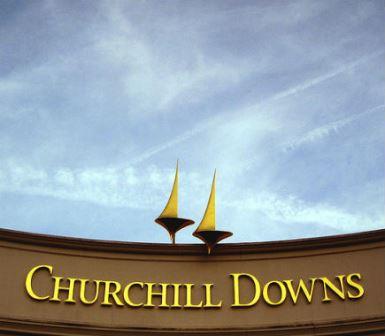The way we look at, watch and consume sports in Louisville is unique, and some would say uniquely obsessive. Sports are an important part of everyday life for our city, our region and beyond. In a new short series of articles, Louisville.com will be looking at how sports interact with other sectors of culture in our city, and both become and support an indelible part life in Louisville. The story behind the bluegrass horse-racing song "Molly & Tenbrooks" is a fantastic example of how of music and sports culture interact in Louisville history.
Kentucky is horse racing country, (our state horse is the thoroughbred, in case you were wondering), and is home to hundreds of farms specializing in the great beasts. It seems natural to use thoroughbred horse racing as a starting point to explore our cultural relationship to sports.
The Derby dates back as far as 1875, and was run at Churchill Downs. A race at the famous venue is chronicled in the traditional bluegrass song, "Molly And Tenbrooks." The event took place back in 1878, and was a match race (i.e. the two competitors went head-to-head). Ten Broek (a name which has been preserved in the song as Tenbrooks, sometimes Tenbrook) was the local favorite, and Molly McCarthy was a powerhouse California mare. The race was as exciting as anything the modern age has to offer, and Ten Broek's win was Molly first competitive loss. As is the power of traditional songs, the description of the day and the race could be taken from this weekend's sports pages, as "the women, all's a-laughin'/ the chillens all a-cryin'/the mens all a-hollered/old Tenbrooks, was flyin…".
The song does contain some rather more outlandish claims however, that "(Tenbrooks) ran all around Memphis and beat the Memphis train…"
The song is traditional and, given the dates in question, stems from the later years of the 19th Century. As with all songs of its type, it appears in many forms, with different titles, verses and concentrations. There are also other traditional horse racing and betting songs. "Skewball", or "Stewball" is a related song, although it does refer to a different horse, and a different time, but sometimes the events of the two songs are related in versions which bring the two together.



